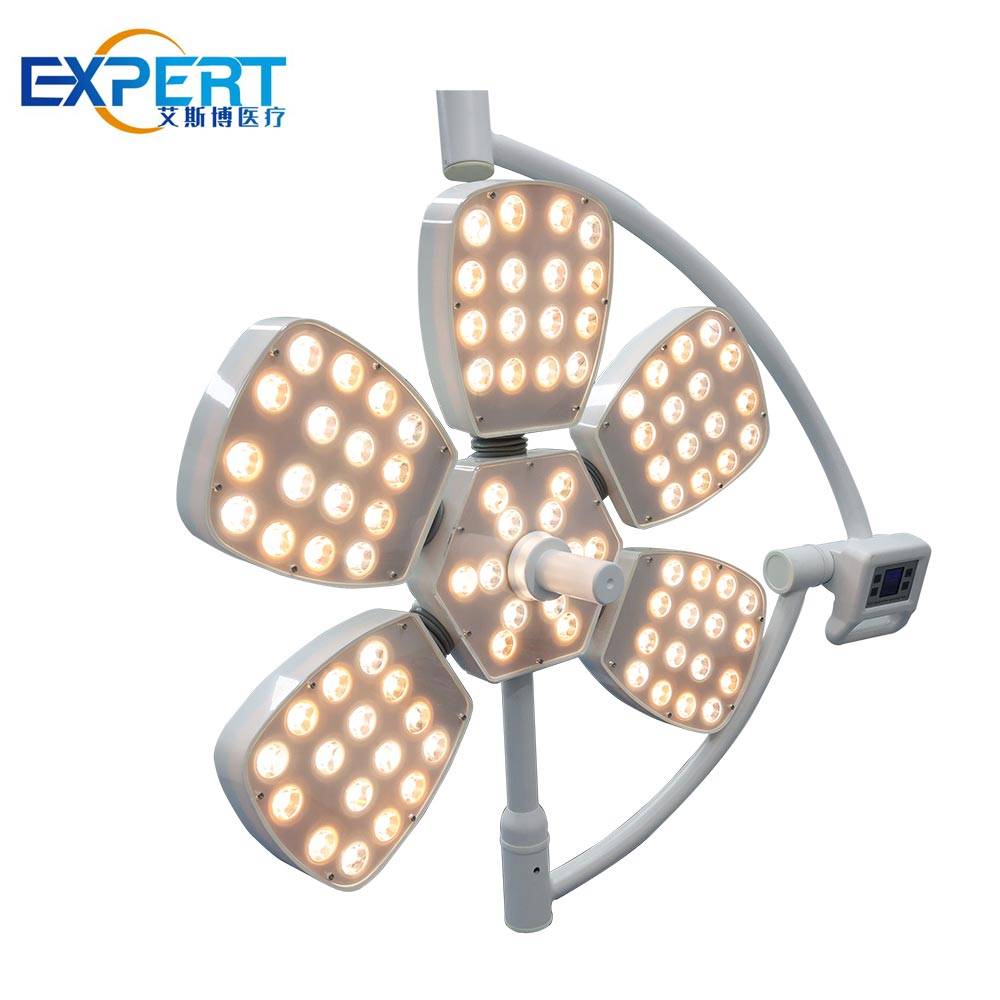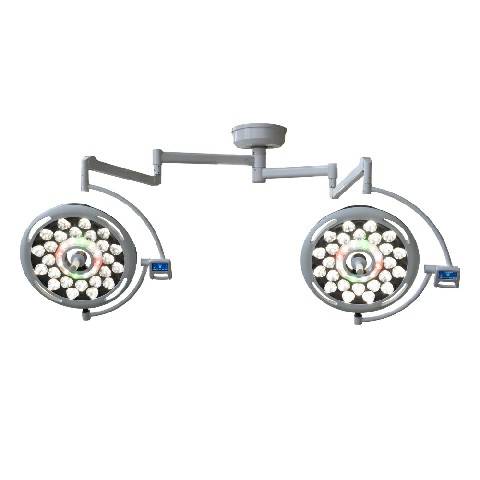Адрес
304 North Cardinal St.
Дорчестер-центр, Массачусетс 02124
Часы работы
С понедельника по пятницу: с 7:00 до 19:00.
Выходные: 10.00 - 17.00
LED surgical lights have revolutionized the operating room environment with their superior illumination, energy efficiency, and longevity. As the medical field continuously evolves, upgrading to an LED surgical light becomes increasingly essential for modern healthcare facilities. This blog will delve into the benefits of LED surgical lights, explain why they are a valuable investment, and answer common questions related to their use. We’ll also explore their impact on surgical procedures and patient outcomes, making a compelling case for why healthcare providers should consider this upgrade.

LED surgical lights offer a multitude of advantages over traditional lighting systems, making them a valuable investment for any healthcare facility. Their superior performance in terms of visibility, heat emission, energy efficiency, and lifespan significantly enhances the quality of surgical care. Let’s delve deeper into the benefits that LED surgical lights bring to the operating room:
One of the primary benefits of LED surgical lights is their ability to provide exceptionally bright and consistent illumination. This high-quality light is crucial for surgeons who need to see fine details clearly. LED lights have a high color rendering index (CRI), which means they reproduce colors more accurately compared to traditional halogen or incandescent lights. This accuracy in color helps surgeons differentiate between various tissues, vessels, and other anatomical structures, which is critical for precise surgical interventions. The consistent brightness also ensures that there are no shadows or dark spots on the surgical field, allowing for uninterrupted focus and better outcomes.
Traditional surgical lights can emit a significant amount of heat, which can create an uncomfortable and sometimes hazardous environment in the operating room. High heat levels can lead to the drying out of exposed tissues, increasing the risk of postoperative complications. In contrast, LED surgical lights produce minimal heat, maintaining a cooler operating environment. This reduction in heat emission enhances the comfort of both the surgical team and the patient, preventing heat-related tissue damage and reducing the likelihood of surgical errors caused by discomfort or distraction. A cooler environment also means that the air conditioning systems do not have to work as hard, leading to further energy savings.
LED surgical lights are highly energy-efficient, consuming much less power than their halogen or incandescent counterparts. This energy efficiency translates into significant cost savings on electricity bills, making LED lights a cost-effective choice for healthcare facilities. The lower energy consumption also contributes to the facility’s sustainability efforts by reducing its carbon footprint. In an era where environmental responsibility is becoming increasingly important, the adoption of energy-efficient technologies like LED lights helps healthcare providers demonstrate their commitment to eco-friendly practices.
The lifespan of LED surgical lights far exceeds that of traditional bulbs. While halogen bulbs may need to be replaced every few months due to burnout, LED lights can last for several years. This longevity means fewer interruptions in surgical schedules for maintenance and bulb replacement, leading to increased operational efficiency. The reduced need for replacements also translates into lower maintenance costs and less waste, aligning with sustainable practices. The long lifespan of LED lights ensures that healthcare facilities can rely on consistent and dependable lighting for extended periods, enhancing the overall efficiency of surgical operations.
LED surgical lights offer unmatched flexibility in terms of focus and intensity adjustments. Surgeons can easily customize the lighting to suit the specific requirements of different procedures. For instance, they can adjust the light to provide a wide field of illumination for general surgeries or a narrow, focused beam for detailed work. This adaptability is particularly beneficial in complex surgeries that require varying lighting conditions at different stages. The ability to control the light intensity also helps in reducing glare and eye strain, allowing surgeons to work comfortably for longer periods without fatigue. This flexibility ensures that the lighting conditions are always optimal, enhancing surgical precision and patient outcomes.
The adoption of LED surgical lights also has a positive impact on the environment. Their energy-efficient nature means that less electricity is consumed, leading to lower greenhouse gas emissions from power plants. Additionally, the long lifespan of LED lights results in fewer bulbs being disposed of, reducing the amount of waste generated. LED lights do not contain hazardous materials like mercury, which is found in some traditional bulbs, making them safer to dispose of and less harmful to the environment. By choosing LED surgical lights, healthcare facilities can significantly reduce their environmental footprint and contribute to global sustainability efforts.
While the initial cost of LED surgical lights may be higher compared to traditional lighting systems, the long-term financial benefits are substantial. The energy savings, reduced maintenance costs, and longer lifespan of LED lights result in lower overall operating expenses. Healthcare facilities can allocate these savings to other critical areas, such as patient care or advanced medical equipment, ultimately improving the quality of service they provide. The investment in LED surgical lights is a strategic decision that offers a high return on investment through continuous cost savings and enhanced operational efficiency.









To better understand the advantages of LED surgical lights, let’s compare them with traditional surgical lighting systems in a tabular format:
| Характерная черта | Традиционные хирургические светильники | Светодиодные хирургические светильники |
|---|---|---|
| Источник света | Halogen/Incandescent | Light Emitting Diodes (LED) |
| Индекс цветопередачи | Умеренный | Высокий |
| Тепловыделение | Высокий | Низкий |
| Потребление энергии | Высокий | Низкий |
| Продолжительность жизни | Короткий | Длинный |
| Maintenance Frequency | Высокий | Низкий |
| Первоначальная стоимость | Ниже | Выше |
| Operational Cost | Выше | Ниже |
| Воздействие на окружающую среду | Выше | Ниже |
As evident from the table, LED surgical lights surpass traditional lighting systems in almost every aspect, making them a superior choice for modern operating rooms.

The quality of lighting in the operating room is a critical factor that can significantly influence the success of surgical procedures. LED surgical lights, with their advanced technology, play a pivotal role in enhancing surgical performance and patient outcomes.
One of the most notable impacts of LED surgical lights is their ability to provide superior illumination. They offer a bright, consistent light with a high color rendering index (CRI), which is essential for accurately differentiating between tissues and identifying subtle variations in color. This enhanced visibility allows surgeons to see the surgical site more clearly, reducing the likelihood of errors and improving the precision of surgical interventions. In complex and delicate surgeries, such as neurosurgery or microsurgery, this level of detail can be crucial for successful outcomes.
Traditional surgical lights often emit a significant amount of heat, which can create an uncomfortable environment for both the surgical team and the patient. Excessive heat can also lead to tissue drying, increasing the risk of complications during and after the surgery. LED surgical lights produce minimal heat, maintaining a more comfortable temperature in the operating room. This reduction in heat not only improves the comfort of the surgical team but also helps in preserving the integrity of tissues, thereby reducing the risk of heat-induced damage and promoting faster healing.
The energy efficiency of LED surgical lights is another significant advantage. They consume much less power compared to traditional halogen or incandescent lights, which helps in reducing the overall energy consumption of healthcare facilities. This efficiency translates into cost savings on electricity bills and contributes to the sustainability efforts of the institution. Moreover, the long lifespan of LED lights means fewer replacements and less waste, further reducing the environmental impact.
LED surgical lights offer the ability to adjust the focus and intensity of the light beam, providing surgeons with the flexibility to customize the lighting according to the specific needs of each procedure. This adaptability is particularly beneficial in surgeries that require varying levels of illumination at different stages. Surgeons can easily adjust the light to ensure optimal conditions, whether they need a wide field of illumination or a focused, intense beam for detailed work. This capability helps in reducing eye strain and fatigue, allowing the surgical team to maintain high levels of concentration and efficiency throughout the procedure.
The reliability of LED surgical lights contributes to smoother and more efficient surgical operations. With their longer lifespan and lower likelihood of failure, LED lights reduce the frequency of maintenance and replacements. This reliability ensures that operating rooms are always ready for use, minimizing downtime and the risk of delays in surgical schedules. In emergency situations, having dependable lighting is crucial for quick and effective interventions.
Ultimately, the improvements in visibility, comfort, and safety provided by LED surgical lights lead to better patient outcomes. Enhanced precision in surgical procedures reduces the risk of complications and improves recovery times. Patients benefit from the reduced heat emission and the resulting lower risk of tissue damage. Furthermore, the energy efficiency and environmental sustainability of LED lights reflect the healthcare facility’s commitment to responsible and forward-thinking practices, which can positively influence patient perceptions and trust.
Upgrading to LED surgical lights is a wise investment for any healthcare facility looking to improve its operating room environment and surgical outcomes. The benefits of LED lights, including enhanced visibility, reduced heat emission, energy efficiency, and longevity, make them a superior choice over traditional lighting systems. By providing better illumination and creating a more comfortable and flexible operating environment, LED surgical lights support surgeons in performing with greater precision and safety.
LED surgical lights offer improved visibility, reduced heat emission, energy efficiency, longer lifespan, and enhanced focus and flexibility, making them superior to traditional halogen or incandescent lights.
LED surgical lights provide bright, consistent illumination with high color rendering index, enabling accurate tissue differentiation and precision in surgeries. Their adjustable focus and intensity reduce eye strain and fatigue, contributing to better surgical outcomes.
Yes, despite the higher initial cost, LED surgical lights are more cost-effective in the long run due to their lower energy consumption, reduced maintenance frequency, and longer lifespan.
Yes, LED surgical lights generate significantly less heat, creating a more comfortable operating environment and reducing the risk of heat-induced tissue damage.
The energy efficiency of LED surgical lights reduces operational costs and aligns with eco-friendly practices, lowering the carbon footprint of healthcare facilities.
